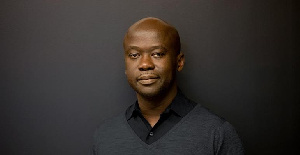 Celebrated Ghanaian architect David Adjaye of Adjaye Associates
Celebrated Ghanaian architect David Adjaye of Adjaye Associates
Celebrated Ghanaian architect David Adjaye of Adjaye Associates was one of two Ghanaians who played a role in the just-released list of Time Magazine’s 100 Most Influential Persons for this year.
Though not listed, Adjaye profiled two fellow architects who made the list, Felwine Sarr and Benedicte Savoy – the two are listed together in the category of “Pioneers.”
In his write up, Adjaye celebrates his colleagues for their role in the restitution of African and Asian artworks to their countries of origin citing their work for the French government that culminated in the Sarr-Savoy Report of 2018.
He wrote in part: “As an architect, much of my work is focused on creating these spaces—New Institutions that can decenter the West and return to knowledge systems that were thriving before the colonial project.
“Felwine and Bénédicte created a theoretical basis for that work, a radical call for understanding how restitution can become a tool for restoring lost memories, and from that new constructs can emerge and become new teaching tools within society.”
This year’s edition of the annual list was released on September 15, 2021, and contained personalities such as US president Joe Biden and his predecessor Donald Trump. The Indian Prime Minister Narendra Modi, Elon Musk of Tesla, Tim Cook of Apple and the Duke and Duchess of Sussex are also listed.
For continental interest, Nigeria’s Ngonzi Okonjo-Iweala, DG of WTO and John Nkengasong, head of the AU’s Center for Disease Control and Prevention are listed. Ugandan-British actor Daniel Kaluuya also makes the list.
What Adjaye wrote about Sarr and Savoy
Felwine Sarr and Bénédicte Savoy have made a critical contribution to the journey of restitution. Their much-discussed “Sarr-Savoy Report,” commissioned by French President Emmanuel Macron and published in 2018, stands as a testament to the fight against colonial legacies of violence.
In addition to its urgent message on the need to restitute African and Asian artworks to their countries of origin, the report provides a framework to guide the emergence of new institutions and spaces that decenter the power dynamic and objectification created by the West.
As an architect, much of my work is focused on creating these spaces—New Institutions that can decenter the West and return to knowledge systems that were thriving before the colonial project. Felwine and Bénédicte created a theoretical basis for that work, a radical call for understanding how restitution can become a tool for restoring lost memories, and from that new constructs can emerge and become new teaching tools within society.
Now, countries like France and Germany and museums including Berlin’s Humboldt Forum are pioneering the process and working with African governments to craft plans to return art and other artefacts. It is thanks, in part, to the work of Felwine and Bénédicte and others who see these changes as essential.